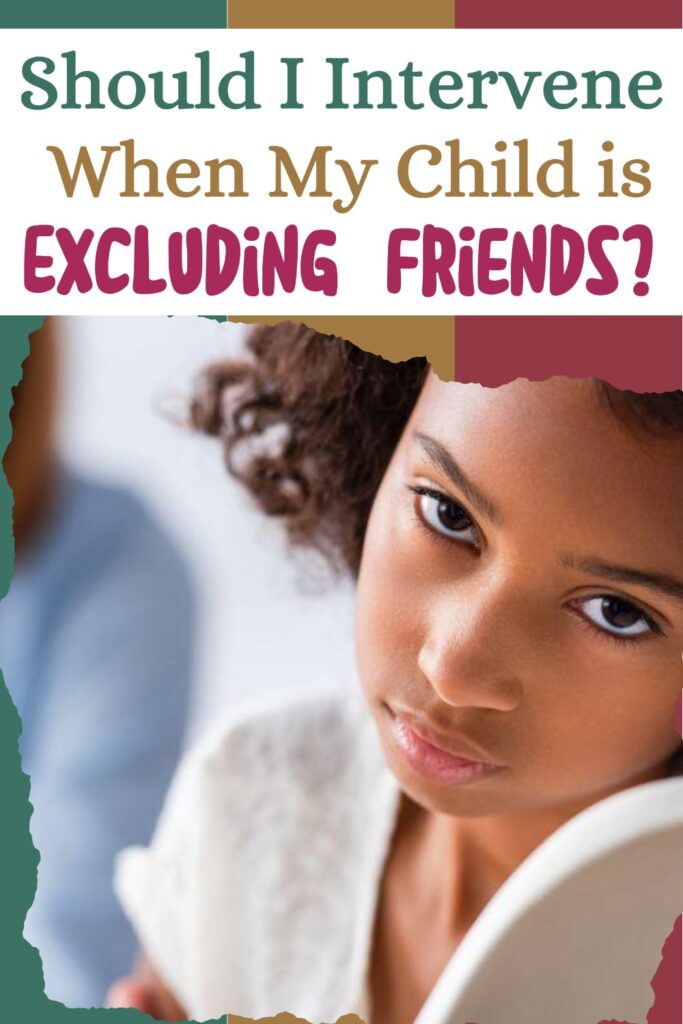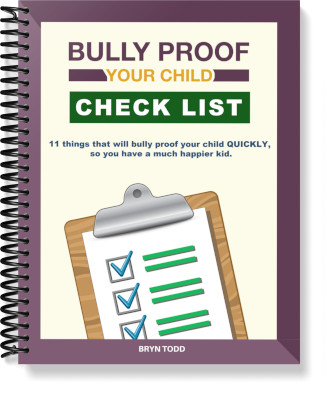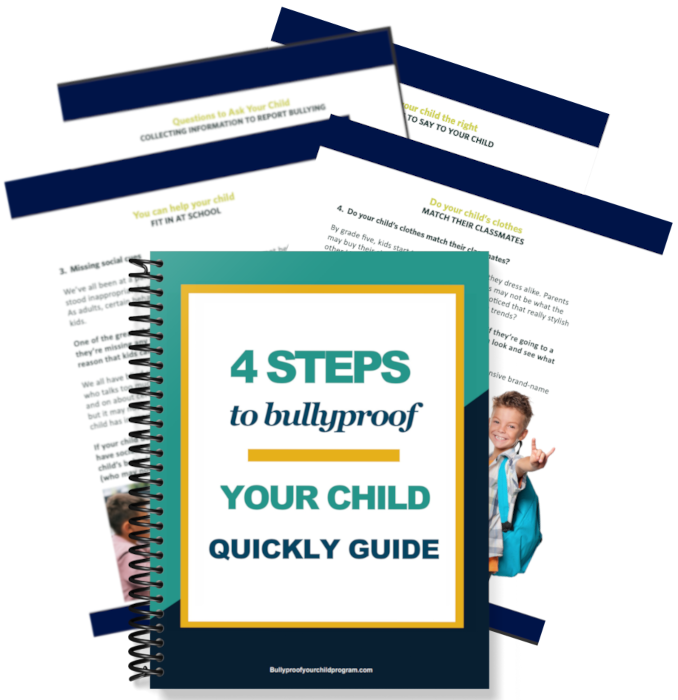
Understanding Social Exclusion
Social exclusion refers to the act of deliberately leaving someone out of a group or activity. It is a form of bullying that can have a profound impact on a child’s emotional well-being.
Social exclusion can occur in many different ways, including not being invited to a party, being ignored by classmates, or being excluded from a game.
Seeing your child exclude others can be tough. You might wonder whether to step in or not. It’s important to address this behavior because it affects everyone’s emotions deeply. Let’s figure out the best way to help your child learn to be inclusive and kind.
Reasons Children Exclude Others
Kids might exclude someone because they feel threatened or maybe they’re jealous. Sometimes, they might not get along with another child’s personality or how they behave.
Trying to fit in with a certain group can also make kids exclude others, especially if they’re just following what their friends do.
It’s crucial to remember that being left out can really hurt. It can make a child feel lonely, sad, and might even make them think less of themselves.
As a parent, understanding how deeply social exclusion can hurt a child’s feelings and self-esteem is important. Knowing why it happens can help you talk to your child about being kinder and more inclusive.
Parental Intervention Strategies
When to Intervene
Figuring out when to step in if your child is leaving out friends can be tricky. Not every situation needs you to jump in right away. Often, it’s good to let your child handle things themselves, with just a bit of advice from you. But sometimes, you really need to get involved.
If you see your child being mean or aggressive, that’s a clear sign to intervene without delay. Also, if your child is the one being left out and they’re upset about it, it’s important for you to step in. You want to help them through these tough feelings and show them they’re not alone.
How to Intervene Effectively
When it’s time to step in, here’s how you can do it effectively:
● Listen to your child: Start by listening to what your child has to say about what’s happening. This gives you a clearer picture and helps you figure out the best way to help.

● Empathize with your child: Make sure your child knows you get how they’re feeling. It’s comforting for them to feel understood and supported.
● Encourage problem-solving: Encourage your child to think about ways they might solve the problem. This builds their problem-solving skills and boosts their confidence.
● Role-play: Try out different ways they can handle the situation by role-playing. This can make them feel ready and less nervous.
● Communicate with other parents: If other kids are involved, it might be a good idea to chat with their parents. This helps make sure all adults are working together and understand what’s going on.
Every situation is different, so there’s no one perfect way to handle things. But by listening, empathizing, and encouraging your child to come up with their own solutions, you’re helping them learn to handle tough situations now and in the future.
More posts you may like
- 9 Best Family Tracking Apps like Life 360
- Internet safety for kids: Tips for school and home
- When your child has a bad day at school but won’t talk about it :Tips for parents
Promoting Inclusive Behavior
As a parent, your role in teaching your child to be inclusive is really important. Show them how to understand and care about others’ feelings. This will help them make friends who feel valued and respected.
By encouraging your child to be kind and welcoming to everyone, you’re helping them grow into a compassionate person. This doesn’t just make them better friends, it makes them better people.
Teaching Empathy and Inclusion
Teaching empathy and inclusion starts with you. When you show kindness, respect, and understanding in your own interactions, your child sees that and learns to do the same.
Explain to your child why these qualities matter. Tell them that being kind and respectful helps build strong and positive friendships.
You can also help your child understand empathy by encouraging them to think about how others feel. When they are playing, ask them to consider their friends’ feelings.
Explain that everyone is different, with their own needs and emotions, and it’s important to be thoughtful and caring towards others. This not only helps your child become more considerate but also enriches their relationships.
Encouraging Positive Friendships
Encouraging positive friendships is key to promoting inclusive behavior. Remind your child how leaving others out can hurt feelings and that everyone should feel welcomed. Suggest that they invite others to join in their games, and stay open to making new friends.
Help your child make connections by finding others who share their interests. Whether it’s a sport, a hobby, or a favorite book, shared passions are great building blocks for strong friendships.
This not only makes playtime more enjoyable but also teaches your child the value of common ground and teamwork.
By teaching empathy, promoting inclusion, and nurturing positive friendships, you’re guiding your child to be kinder and more compassionate.
You’re showing them the value of treating everyone with respect and kindness, helping them grow into caring individuals who enrich the lives of those around them.
Monitoring a Child’s Social Development
It’s important for you, as a parent, to keep an eye on how your child is doing socially. Watching how they interact with friends lets you see if they’re building healthy relationships.
This helps you spot any warning signs early and teach the social skills they’ll need for life. It’s all about supporting them as they grow and helping them along the way.
Recognizing Red Flags
Keeping an eye out for red flags in your child’s social interactions is crucial. If you notice your child either excluding others or being excluded, it’s important to step in and understand what’s happening.
This could mean they’re having trouble with social skills or they might be facing bullying. Watch for signs like your child becoming quiet or withdrawn or if they start talking about school or friends in a negative way.
These can all be clues that something is up, and it’s essential to address these issues to help your child navigate their social world better.
Fostering Social Skills
Helping your child develop good social skills is key to them forming healthy relationships with others. It’s important to teach skills like empathy, communication, and problem-solving.
You can encourage your child to practice these by role-playing different social scenarios with them and talking about the best ways to handle them. Also, setting up playdates or getting them involved in clubs or activities they like can help them make more friends.

Remember, keeping an eye on how your child interacts with others is a continuous effort that needs patience and understanding.
By watching out for any concerning signs and actively helping them improve their social skills, you’re setting them up for a happier, successful future with strong, healthy relationships.
Frequently Asked Questions:
1. What steps should I take if my child is intentionally excluding others?
If you see your child intentionally leaving others out, it’s crucial to tackle this behavior right away. Begin by sitting down with your child and asking them why they are choosing to exclude others. Really listen to their response to understand where they’re coming from.
They might not even see how their actions could be hurting someone else. Use this moment to explain the importance of including others and how empathy matters in friendships.
Show them how their actions affect others and teach them the value of being kind and welcoming to everyone.
2. How do you address exclusion issues with your child without overstepping boundaries?
When it comes to addressing exclusion issues with your child, it’s key to strike a balance between guidance and respecting their space. Begin by gently letting them know you’ve noticed some behaviors where they might be leaving others out.
Express that you’re there to help them handle these situations better. Encourage them to open up about their feelings and thoughts on the matter. Listen closely without judging to truly understand their perspective.
Together, create a plan to improve their interactions with others in a way that makes your child feel supported and understood. This approach helps maintain trust and encourages positive social habits.
3. What are effective ways to discuss friendship dynamics with your child?
Talking about friendship dynamics with your child is a great way to help them understand how to be a good friend and recognize the qualities of good friendships. Start by asking your child to share what they like about their friends and what they think makes someone a good friend.
Encourage them to reflect on how they can be a better friend too. Use examples from everyday life or stories they know to discuss different friendship scenarios.
Ask questions like, “What would you do if you were in this situation?” This helps your child think through their responses and develops their empathy and problem-solving skills. These conversations are crucial for building strong social skills that will help them throughout life.




